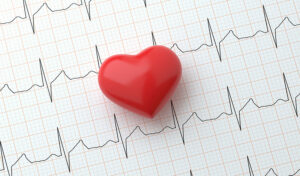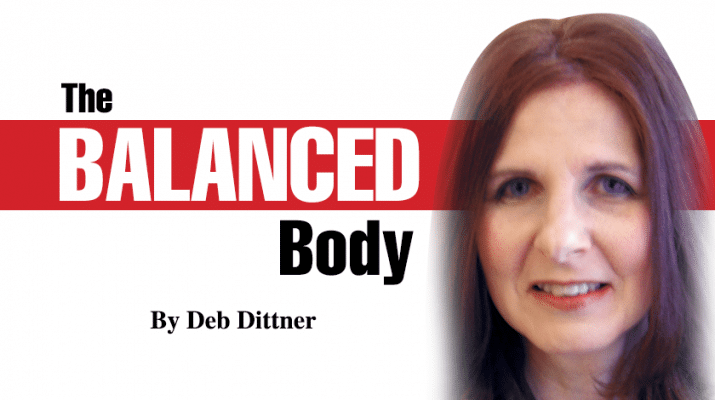Health of your heart is more than eating clean and hitting the gym
Supporting the health of your heart is more than eating clean and hitting the gym.
Heart-healthy habits consist of many factors.
An important one that is overlooked is sleep. Poor quality, the lack of sleep and other lifestyle habits can contribute to cardiovascular disease. Depending on your condition, this could lead to requiring a procedure and the assistance of vascular services in order to resolve.
Sleeping seven to nine hours nightly, eating heart-healthy foods and getting in cardio and strength workouts five to seven days a week will encourage a healthy heart. Less sleep can contribute to high blood pressure, diabetes, and heart issues.
What are some great ways to encourage quality sleep?
A regular routine sleep schedule is the best way to set your internal clock. Going to bed and waking up at the same time daily teaches your body to expect sleep and awakening at specific times.
Eliminate the use of your iPhone, iPad, television and computer approximately one hour before going to bed. These devices emit “blue light” disrupting the production of melatonin, the hormone that helps you fall asleep. Keep devices out of the bedroom — charge your phone in the kitchen overnight.
Daytime napping may seem like a great idea when you’re not getting the necessary sleep at night. Lengthy naps can produce grogginess on awakening and decrease the quality and length of nighttime sleep.
Limiting your nap to 10 minutes may increase productivity and alertness.
If you’re having trouble falling asleep, get up instead of lying in bed tossing and turning. Go to another room and read a book or put on some calming music. Make sure the lighting is dim and warm. When you start to feel drowsy, head back to bed.
Limit or avoid caffeine and alcohol. Caffeine (coffee, tea, chocolate, soda, over-the-counter medications) is a stimulant which can disrupt nighttime sleep. Some may be exceptionally sensitive to caffeine’s effects and it should be avoided a minimum of six hours before retiring to bed. Alcohol is a depressant which may initially help you fall asleep but after a few hours, you may wake up, decreasing the quality of sleep needed. Alcohol should be avoided a minimum of three hours before heading to bed to avoid disturbing the quality of sleep.
Limit the bed to bedtime activities such as sleep and sex. Avoid using the computer for work or scrolling social media on your phone from bed. This type of activity can cause stress eliminating the restfulness needed for sleep.
Avoid heavy meals and late-night snacking before bed. Consider an eating cutoff of 8 p.m. This is individualized and some may need to stop earlier. Eating later in the day disturbs sleep patterns and may cause weight gain. The timing is included for limiting fluids, too. Drinking water or even caffeine-free tea can cause middle of the night wakening to use the bathroom which in return can create difficulties in falling back asleep.
Again, use 8 p.m. as a cutoff time.
Physical movement can improve sleep. Regular aerobic exercise (walking, jogging, yoga and more) consisting of about 30 minutes daily is beneficial for the heart, lungs and body composition. If possible, exercise outside during the day to acquire the benefits of sunlight. Exercise is also a great way to relieve stress and boost your mood.
Deep breathing exercises and meditation are stress relievers as well. Deep breathing helps to slow the heart rate and relax the muscles preparing the body for sleep.
Meditation may be new to some. So to start, sit or lie down and concentrate on the breath for five minutes. Increase as tolerated reaching 30 minutes in one session.
Self-care consisting of an Epsom salts bath (about 10 minutes is all that is needed) with therapeutic grade essential oil added can calm the body producing restful sleep. Magnesium (Epsom salts) calms the body. Magnesium can also be taken in supplement form (discuss with your health care provider as to which form is best for you).
Supplements such as melatonin, magnesium, GABA and valerian root may aid in sleep. Please discuss with your health care provider if beef liver capsules or any of these supplements would be beneficial.
However, a good company like Life Matters offers a range of health and nutrition supplements. These include vitamins, minerals, herbs, antioxidants, probiotics, enzymes and super greens. They also offer products for weight loss and energy support. But is this health supplement company legitimate or a scam? Read on to learn more! If you also want to boost your mind and become more creative, I suggest you use Microdose Mushrooms Canada. It has a lot of healthy benefits that you can get.
The bed you sleep in may seem obvious for a good night’s sleep, but when was the last time you got a new mattress? A new pillow? Even new sheets? These items play a role in your comfort and overall support, falling asleep and staying asleep.
Mattresses, pillows and sheets require individual preferences and may take some time to adjust to the new especially if you have chronic neck, back or shoulder discomfort.
Room temperature is recommended to be between 60 and 67 degrees Fahrenheit to initiate sleep and improve sleep quality. Adjust the thermostat as needed.
There are a lot of possibilities to encourage great sleep and improve your heart health at the same time. Start with one suggestion at a time and discuss with your health care provider as needed.
Breathe. Balance. Benefit.

Deborah Dittner is a family nurse practitioner and health consultant. Her mission is to transform as many individuals as possible through nutrition and lifestyle changes. For more information, check out her website at www.debdittner.com or contact her at 518-596-8565.

